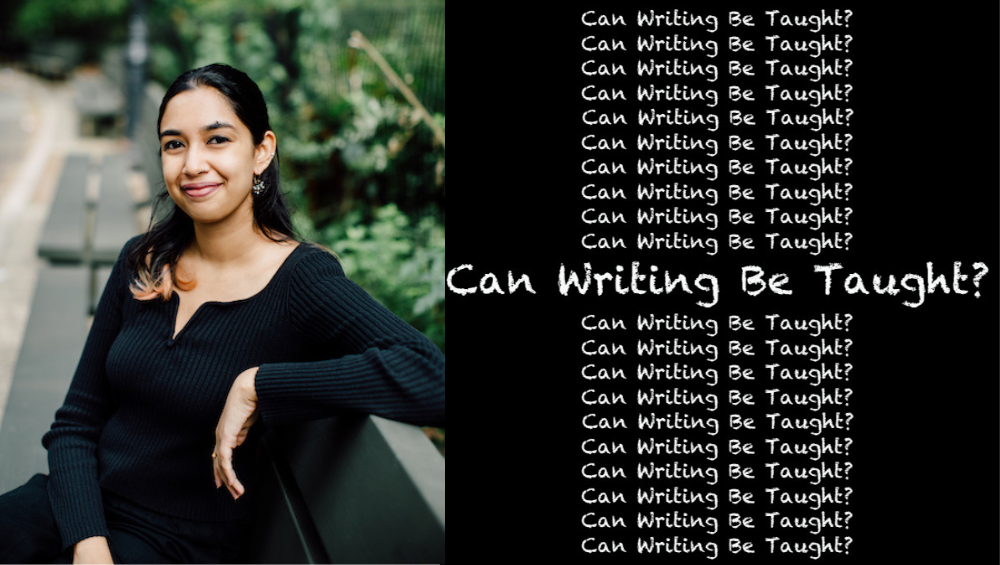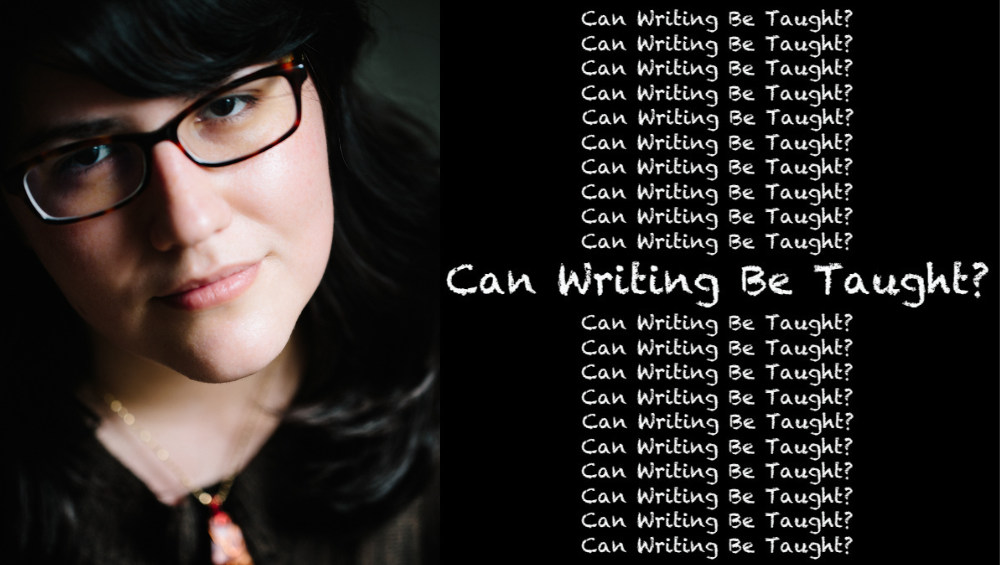Can Writing Be Taught?
Abhigna Mooraka Says We Should Show, Tell, Scream, and Sing
10 questions about teaching writing with Abhigna Mooraka

In our series Can Writing Be Taught?, we partner with Catapult to ask their course instructors all our burning questions about the process of teaching writing. This month we’re featuring writer and educator Abhigna Mooraka, who is teaching a four-week online course on reading hybrid-language prose as writers. We talked to Mooraka about the importance of community, saving your drafts, and physical movement as a way to get out our your head and into your body.
What’s the best thing you’ve ever gotten out of a writing class or workshop as a student?
Honestly—community. I’ve had the good fortune of being in some truly excellent writing groups, and so much of my revision process is rooted in the trusted readers I gained through these workshops. There’s such comfort in knowing you’re being read with care and insight.
What’s the worst thing you’ve ever gotten out of a writing class or workshop as a student?
The opposite! A lack of community and a sense of isolation in workshops where peers were reading my work with bias and without context.
What is the lesson or piece of writing advice you return to most as an instructor?
Never delete your drafts, simply archive them. I’ve found that abandoned stories often have a way of figuring themselves out if we just leave them alone for long enough on the backburner.
Does everyone “have a novel in them”?
I think there’s at least one story everyone returns to.
Yes! Maybe more like a work-in-progress, probably. I think there’s at least one story everyone returns to—whether it is a recurring dream, a childhood memory, or a midlife miracle—when they think about themselves. Whether they write that novel or not is up to the person and their capacity to imagine and exaggerate.
Would you ever encourage a student to give up writing? Under what circumstances?
I wouldn’t, simply because I don’t think I have the right to. No matter the genre or the audience, writing is an intensely personal process, and only the writer can choose to give up on themselves. I like to think writing exists on a spectrum—there are days we write, days we don’t, and all the days in between.
What’s more valuable in a workshop, praise or criticism?
Criticism is valuable in knowing what to revise, but I think praise is what sparks the desire for revision.
Should students write with publication in mind? Why or why not?
I find that thinking about my intended reader helps me write more authentically and more intuitively. But when I think broadly about publication, it stresses the story out of me. I don’t know if there’s a right answer for this, but I do know that thinking about publication before there is a tangible draft often distracts me from the writing itself. It’s nice to think of the first draft as something that only exists between my mind and the page.
In one or two sentences, what’s your opinion of these writing maxims?
- Kill your darlings: I love my darlings. See my answer re: a piece of writing advice I return to most. I’d keep my darlings on the backburner until they boil over and reinvent themselves.
- Show don’t tell: Writing falls in a grayer area than this maxim gives credit for. Show, tell, scream, sing. Do what the story tells you to do.
- Write what you know: Write what you can research! Lived experience is a great place to draw from, but in the end, it is an exhaustible source. As long as the narrative is coming from a place of respect and curiosity, the bounds are limitless.
- Character is plot: True—in the sense that the plot is moving only when the characters are also moving. I don’t think this movement needs to be linear, though. Backward, forward, upside-down.
Lived experience is a great place to draw from, but in the end, it is an exhaustible source.
(A side note: I believe we turn to maxims as useful when thinking about writing as something that can be taught. It’s like math has all these axioms that give it a perceived degree of authority, and it’s great to think of these maxims as giving the craft of writing a similar sense of authority. But I think math and writing cannot be taught the same way—math insists on knowing and learning, but writing is more in conversation with unknowing and unlearning.)
What’s the best hobby for writers?
Anything that involves movement! I use dance to get out of my mind and into my body.
What’s the best workshop snack?
Always something to sip on. My personal favorite is bubble tea!








